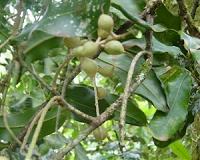 |
Asuncion, Paraguay (UPI) Aug 26, 2010 Paraguay is celebrating record economic growth on the back of its soy exports but remains exposed to domestic and international pressures to consolidate a more secure future. An ever bigger uncertainty is political, not economic -- President Fernando Lugo's fight against cancer. Lugo, 59, a former Roman Catholic bishop who won election two years ago, was diagnosed with non-Hodgkin's lymphoma this month. Earlier the president was ambushed by multiple paternity claims by women he met during priesthood. But the scandals oddly enhanced his standing among Paraguayans respectful of virility in their leader. Lugo begged forgiveness and was back on the road until cancer struck. News of the land-locked nation's soybean bonanza from the Central Bank brought cheer to the country, only to be tempered by Lugo's future and memory of Paraguay's relapse in the 2009 economic downturn, which was made worse by a prolonged drought. Analysts said the soy-based recovery was a short-term gain for Paraguay, one of Latin America's poorest nations, and the country needed more investment and economic diversification. Plans by bigger Mercosur trade bloc nations to build railroad and highways connecting Latin America's Atlantic coastal regions with the Pacific would benefit Paraguay but in the longer term, analysts said. For now, export earnings from soy would bring much needed cash to help the economy back on its feet after the mauling it received in the double whammy of drought and global economic downturn in 2009. The crisis pushed the country's 6.3 million people, except for the privileged minority, further down the poverty line. Paraguay lies on both banks of the Paraguay River, an advantage when the river is full but a punishing ordeal when it begins to run dry, as in the last drought. This year's abundant soy crop encouraged the country's economic planners to revise the growth forecast from 6 percent to 9 percent -- mostly because of soy earnings, some manufacturing and other farm produce. This would be the economy's largest annual expansion in almost three decades and is unlikely to be repeated any time soon, analysts said. Central Bank President Jorge Corvalan said the economy would also benefit from a construction boom and increased livestock production. Growth in 2011 could even out to around about 4.4 percent, he said. Analysts said improved consumer demand and job prospects could further boost the economy. Manufacturing received some attention in recent years but the economy is blighted by an "informal sector" that allows wealthy landowners to employ large numbers of peasant farm laborers on subsistence wages -- a potential flash point cited by the opposition in its campaign pronouncements against the government.
Share This Article With Planet Earth
Related Links Farming Today - Suppliers and Technology
 Kenya fights threat to nut cash crop
Kenya fights threat to nut cash cropNairobi, Kenya (UPI) Aug 25, 2010 A tree disease threatens the livelihood of farmers in Kenya who grow macadamia nuts, their only cash crop after the coffee market crashed, officials say. The coffee boom of the 1970s and 1980s ended when the Kenyan government failed to protect coffee farmers from middlemen, who pay farmers as little as 25 cents for 2 pounds of coffee worth up to $10 in the European market, and many coff ... read more |
|
| The content herein, unless otherwise known to be public domain, are Copyright 1995-2010 - SpaceDaily. AFP and UPI Wire Stories are copyright Agence France-Presse and United Press International. ESA Portal Reports are copyright European Space Agency. All NASA sourced material is public domain. Additional copyrights may apply in whole or part to other bona fide parties. Advertising does not imply endorsement,agreement or approval of any opinions, statements or information provided by SpaceDaily on any Web page published or hosted by SpaceDaily. Privacy Statement |